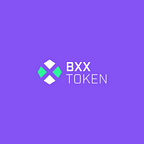A distributed ledger is a dynamic form of media, it enables us to secure and formalise new kinds of relationships in the digital world. There are several advantages to using DLTs, one being they have an immutable database, all information is stored and cannot be erased thanks to their use of blockchain technology. Read on to find out more about the history of distributed ledger technology and how they are currently used in the digital world as we know it.
The link between DLT and blockchain
Blockchain: you’ll come across this word a lot when you are reading anything about DLTs and digital assets. To understand DLTs properly, you need to understand what a blockchain is. So first things first, let’s take a closer look at blockchain technology.
Blockchain’s a specific type of database, it stores information in blocks that are chained together, hence the name. Once one block has stored all the data, it’s then added to the chain in chronological order creating a blockchain. Different types of data can be stored in a blockchain but the most common use so far has been as a ledger for transactions.
Blockchain is a type of DLT, but not all DLTs use blockchain technology. DLT doesn’t only function for the digital asset market too. Its unique ability to add and sort data means it can serve other functions across a range of industries.
Transactions are complex and costly, and DLT built on blockchain helps to eliminate human error. DLT makes sure information cannot be lost, making all data stored on them safe and secure. On top of this, DLT helps reduce paper processes, having the potential to be friendlier for the planet.
The history of ledgers
Ledgers, at least the concept, have been around since the start of time. Before computers entered mainstream living in the 1980s and ’90s, ledgers came in forms such as clay, stone, papyrus and paper. Then they were digitised.
Early digital ledgers copied the cataloguing and accounting of the paper-based world; it could be said that digitisation has been applied more to the logistics of paper documents rather than their creation. Paper-based institutions are still important for our society: money, written signatures, bills, certificates and double-entry bookkeeping.
Breakthroughs in cryptography, such as the launch of Bitcoin in 2009: the first digital asset to be powered by blockchain technology, demonstrated that DLT was not only enabling the technology to work but also that it could scale and remain secure. This was a key development for DLTs, and thanks to them we have seen many innovative digital assets appear since — such as a Tangle used to process and store data on the IOTA network.
So what are DLTs?
Distributed ledgers exceed the capabilities of the static paper-based ledger, they have no central data store or administration functionality, therefore, making transactions more accessible and easy to keep a hold of compared to paper-based ledgers. DLTs are a database that’s consensually shared and synchronised across multiple sites, institutions or geographies.
The invention of DLTs represents a revolution in how information is gathered and communicated. This applies to both static data and dynamic data. Static data is data that is fixed and doesn’t usually change, compared to dynamic data that is periodically updated as new information is added. DLTs allow users to move beyond the simple custodianship of a database and divert energy to how we use, manipulate and extract value from databases. It’s less about maintaining a database, and more about managing a system of record. Rather than just storing information like a regular database does, DLTs are much more flexible and enabe records to be updated in real-time whilst also storing all necessary information.
Unlike traditional databases, DLTs have no central data store or administration functionality. There’s transparency with DLTs, every bit of data is tracked and cannot be deleted. One user cannot make a single change, it has to be passed through several nodes. Once there is this consensus, the DLT will be updated and all nodes maintain a copy of the ledger. The architecture allows for a new dexterity as a system that goes beyond being a simple database.
Advantages of DLTs
A key advantage of DLTs is that they eliminate the need for a central authority to maintain and manage the database. A centralised ledger is more prone to cyber-attacks and fraud but DLTs built on blockchain technology have no single point of failure and are much more difficult, if not impossible, to hack into.
There are several advantages to using DLTs:
- Reduces operational efficiencies as it works 24/7
- Harder to be cyberattacked
- Provides an easy flow of information
- Immutable database, all information is stored and cannot be erased.
Distributed ledgers are used in other industries besides the digital asset market. Industries such as supply chains of various commodities, diamond and precious assets, music and entertainment industries. Enterprise Ethereum and Corda are examples of open-source DLTs for businesses to build distributed ledgers and improve their transparency, security, and efficiency.
It is looking as though the future format of centuries-old ledgers is to be decentralised. No one can really tell but what can we expect if this is to happen? DLTs can sustainably improve market outcomes and are becoming more standardised, experts suggest that DLTs are an important piece of technology, and can play an important role in improving existing processes as well as inspire innovative new applications. What do you think the future holds for distributed ledger technology?
Learn more about Baanx, BXX, and join the conversation
Check out the Baanx App on either Apple or Android. You can buy, sell and transfer digital assets right from your smartphone. The Baanx ecosystem is powered by our BXX token. Find out more information on how you can get involved in the links below:
Trade BXX on Uniswap
Trade BXX on MEXC
Come join the conversation and be a part of the community.
BXX Community Links
Telegram Group
